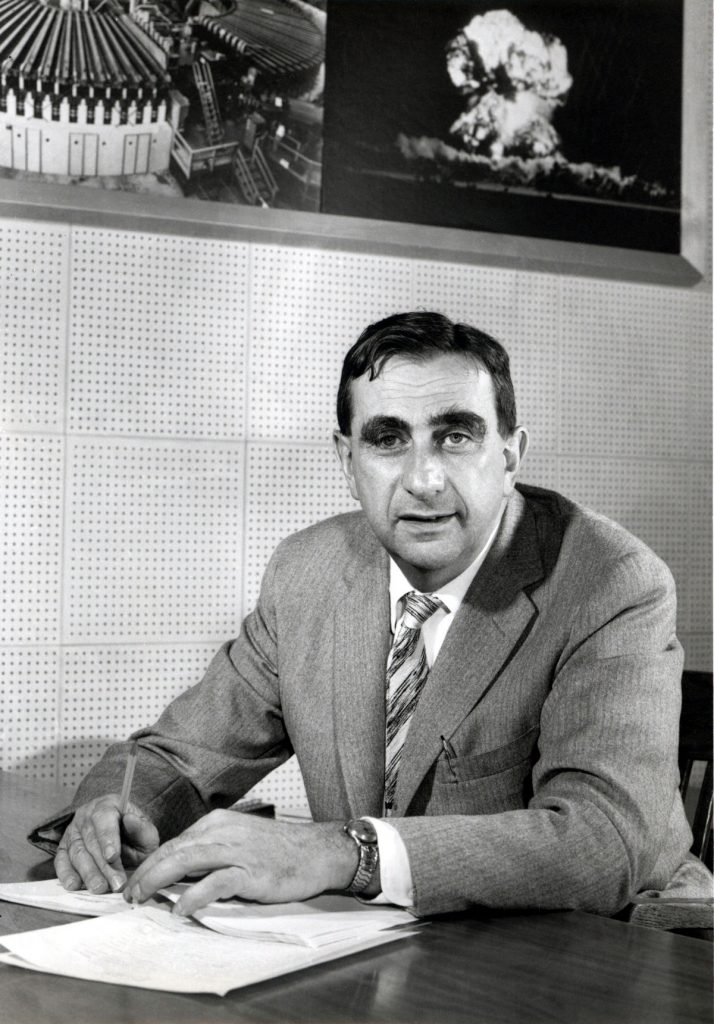EDWARD TELLER (1908-2003)

Called “the father of the hydrogen bomb” (a title he, unsurprisingly, didn’t like), Edward Teller launched humanity into the nuclear age with his earthshaking work on the Manhattan Project and the development of thermonuclear weapons. Born into a Jewish family in Budapest, young Teller witnessed Hungary’s tumultuous political transformations following World War I (leaving him scornful of both communism and fascism) and, partly due to Hungarian anti-Semitic policies of the era, he left his home country in 1926 to study in Germany. Recognized for his brilliance by his early 20s, Teller worked with Italian nuclear-physics pioneer Enrico Fermi, who inspired his career path – but when Hitler took control of Germany in 1933, Teller fled to England before becoming a professor in the United States. After making important contributions in physics and chemistry at George Washington University, Tellertook a leading role in the US government’s WWII effort to build the world’s first atomic bombs, though he was already then eager to create more powerful thermonuclear weapons. Teller realized that goal in the 1950s as the mastermind behind the H-bomb, but in later years he advocated non-military nuclear projects, such as creating a new Alaskan harbor with massive nuclear explosions (also unsurprisingly, local officials did not approve).

